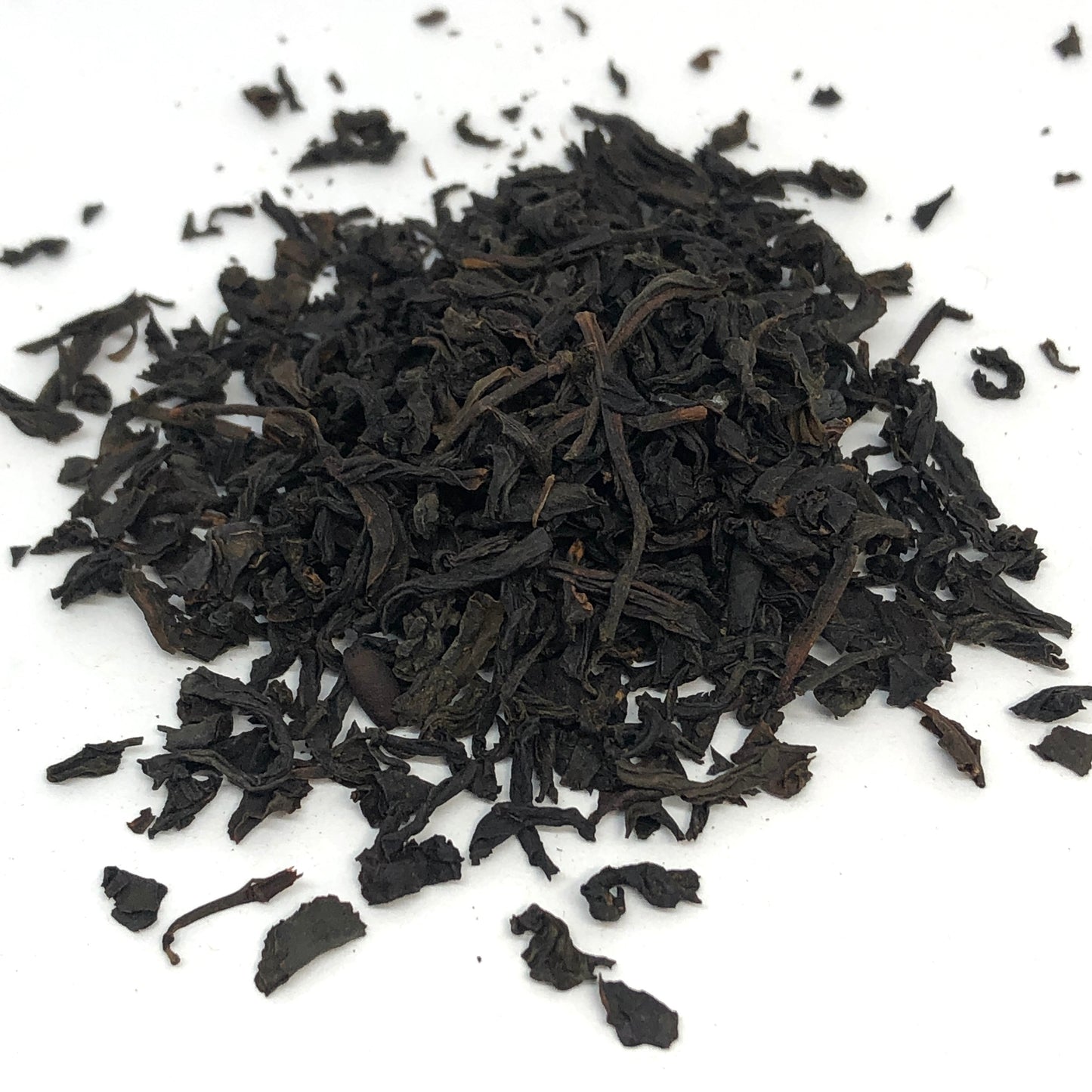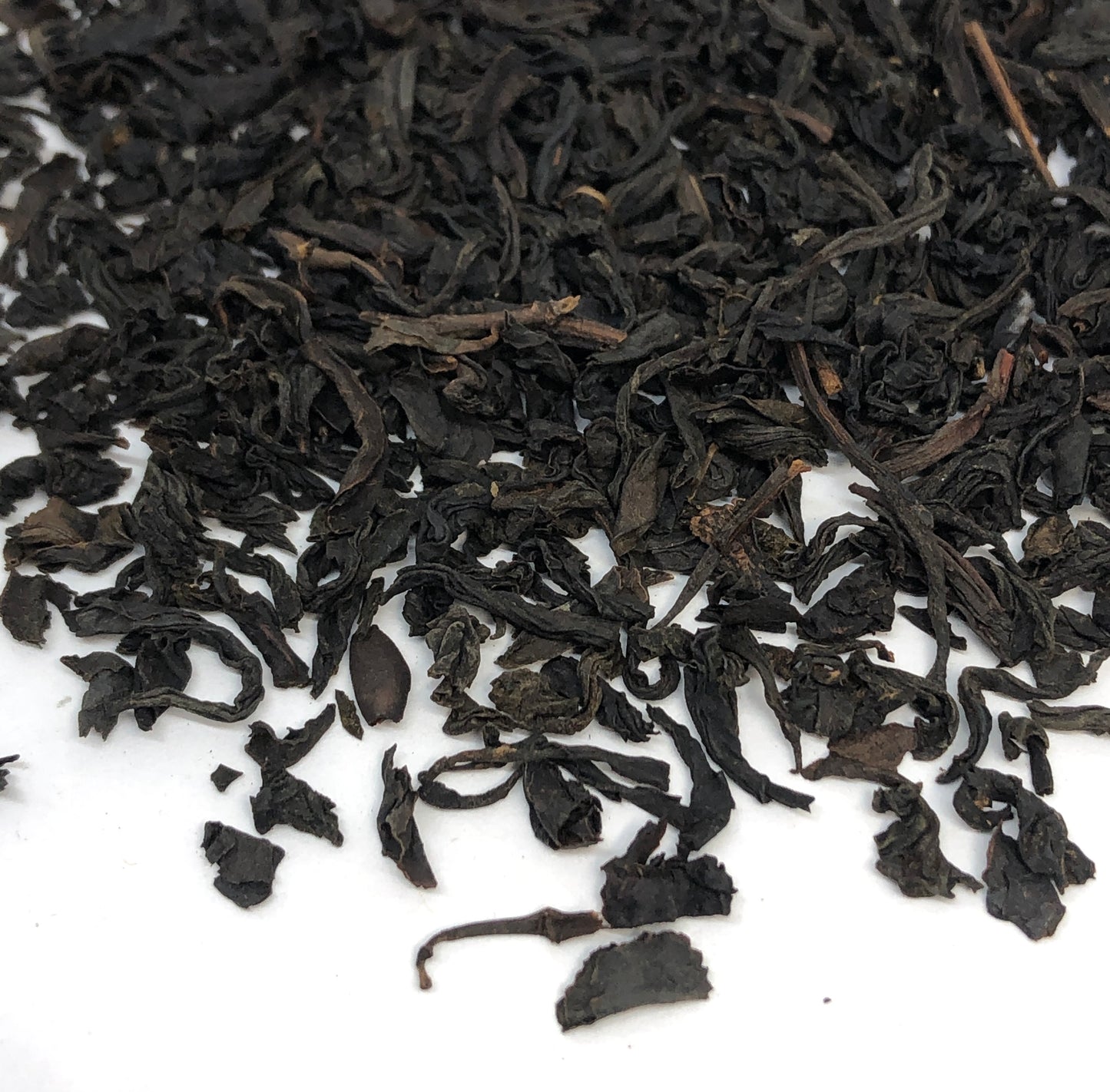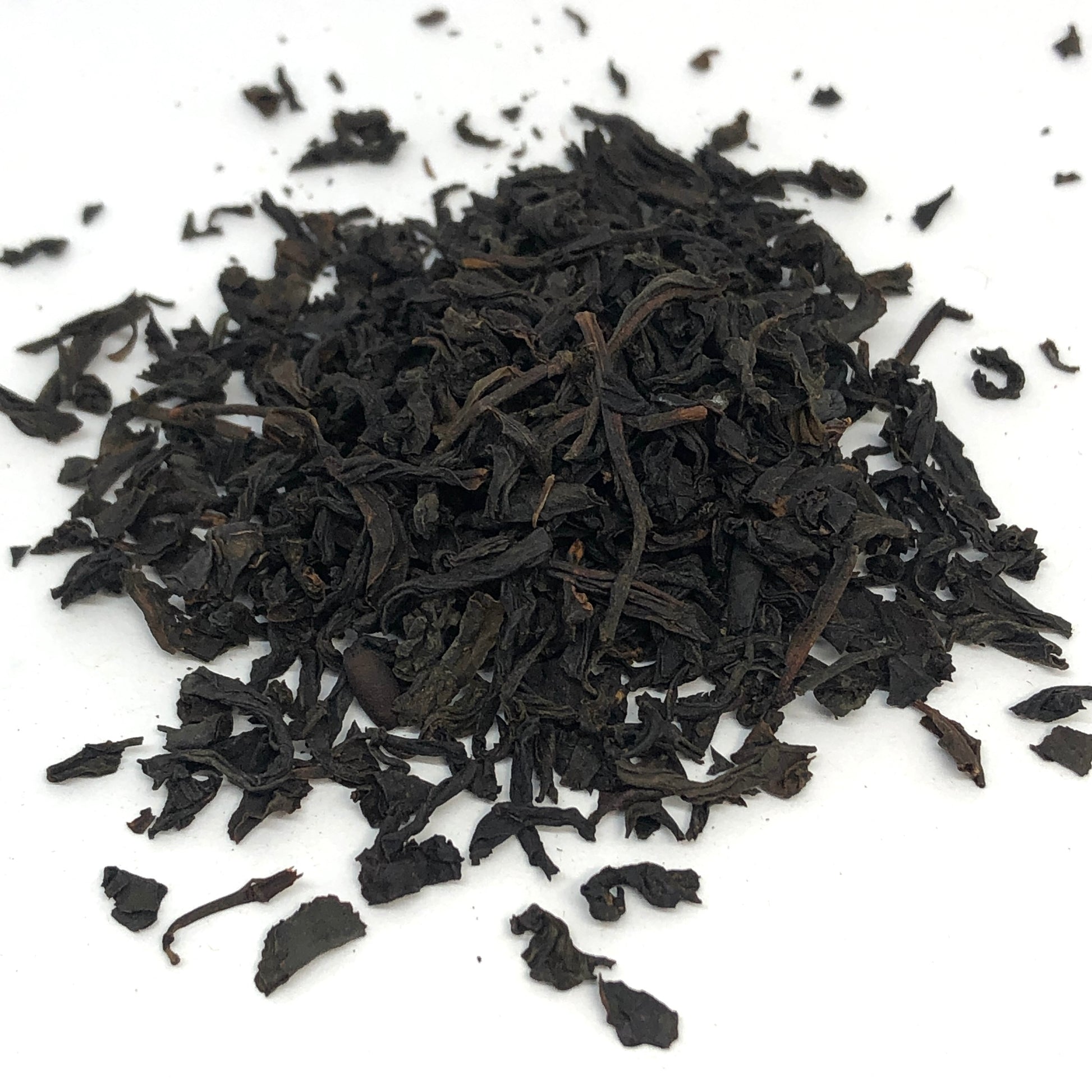Smoked Lapsang Souchong - Fujian
Smoked Lapsang Souchong - Fujian
爉生酥种 (Là shēng sū zhǒng) Lapsang Souchong / Smoked fresh tea
A traditional Chinese tea from the Wuyi Mountain area in the province of Fujian. The leaves of this tea have been smoked over pine wood to impart a distinct smokey flavour.
Xiǎozhǒng or Souchong in tea terms refers to the larger, coarser tea leaves of the tea bush, lower than the traditional first 2 leaves and bud. Lapsang souchong is a member of the Bohea family of teas, which are typically oolong or black teas from the Wuyi Mountain region of Fujian.
Two different teas, one name
Tea names through the ages have often been 'lost in translation' from the the western English world trying, and more often than not, mispronouncing Chinese words and characters. This leads to tea names morphing from the original to a totally new understanding. To understand a tea's name, looking back into the original characters can help.
In the west, the tea name, Lapsang Souchong, has been applied to two different teas. The first is applied to the Mandarin translation of Zhengshan Xiaozhong which translates to "Mount Zheng small variety", a tea that was perhaps the earliest black tea, while traditionally dried over pine fire, good grades of this tea do not have a smoky or tarry aroma. The second, more well known tea by the name of Lapsang Souchong is more recently traced back to a Cantonese translation, Lap Sangsouzung (爉生酥种 or 爉生酥種), which was pronounced Lapsang Souchong when the name became known in the West; “Lap 爉” is “huoliao 火燎, burned by fire.” “Sangsouzung 生酥種” is “the fresh and fragile variety,” that is to say, “smoked, fresh tea.”
Adapted from an explanation by Prof. Ting Pang-hsin, as emended by Prof. Weldon South Coblin and Prof. Victor Mair, and translated by Steven D. Owyoung
Couldn't load pickup availability




